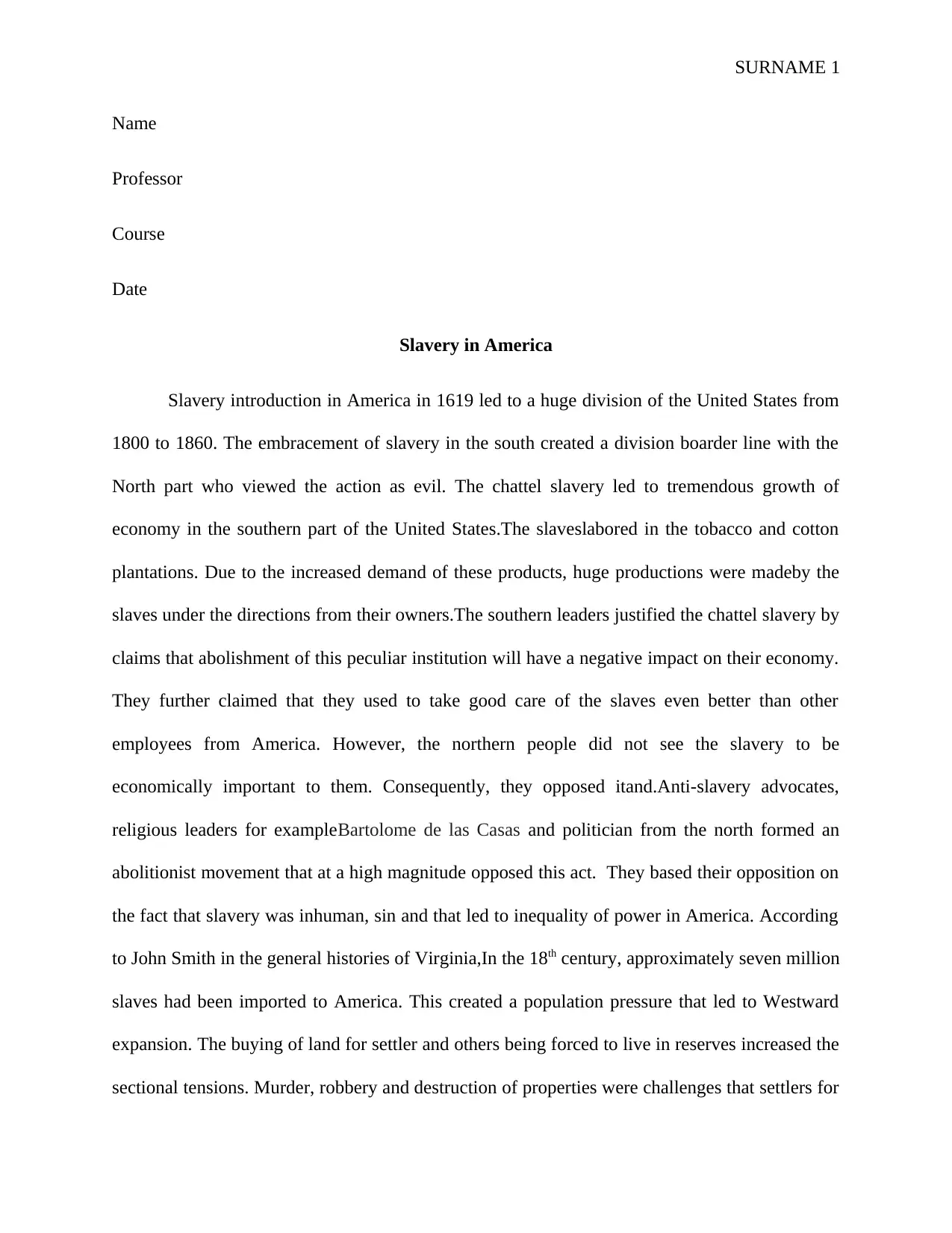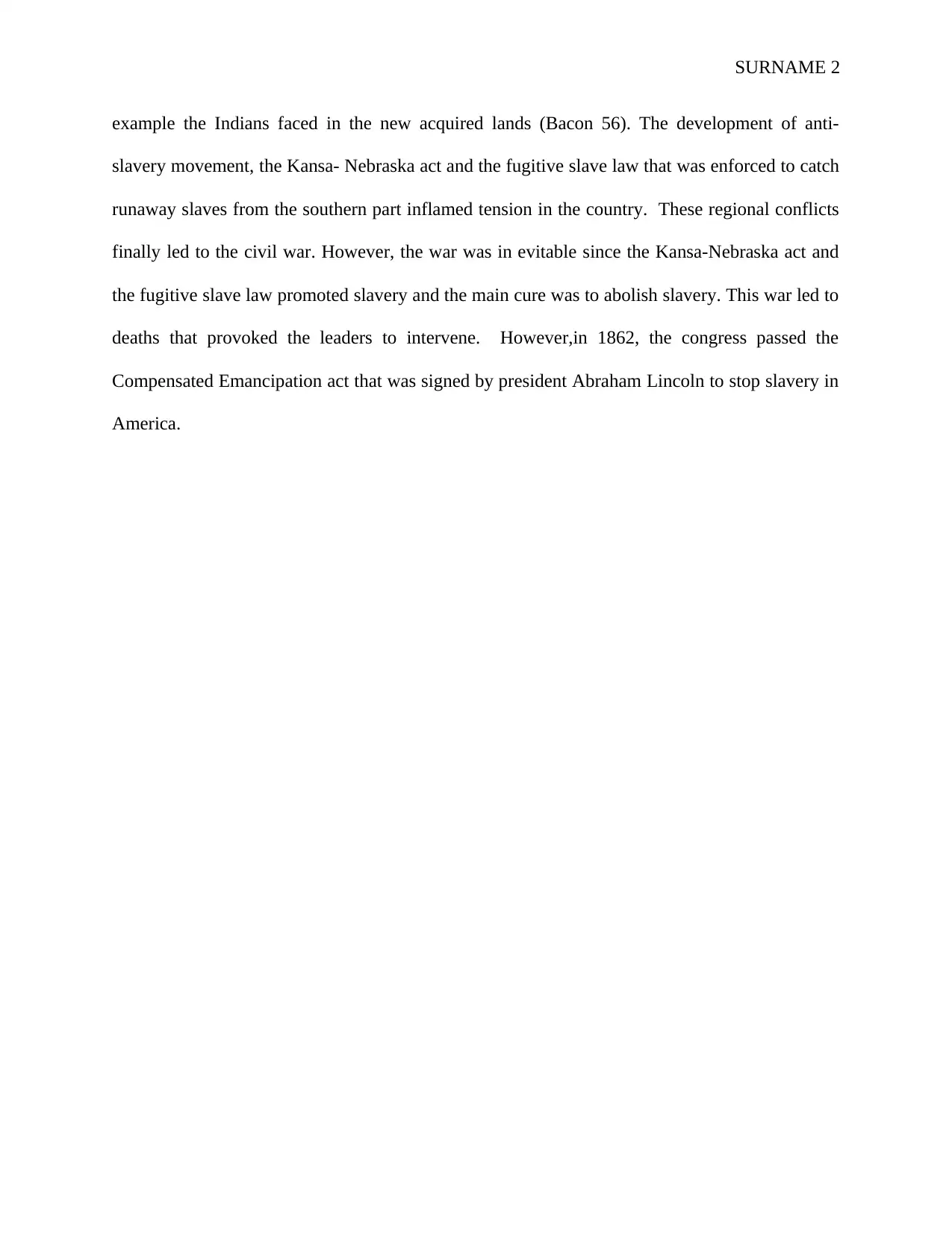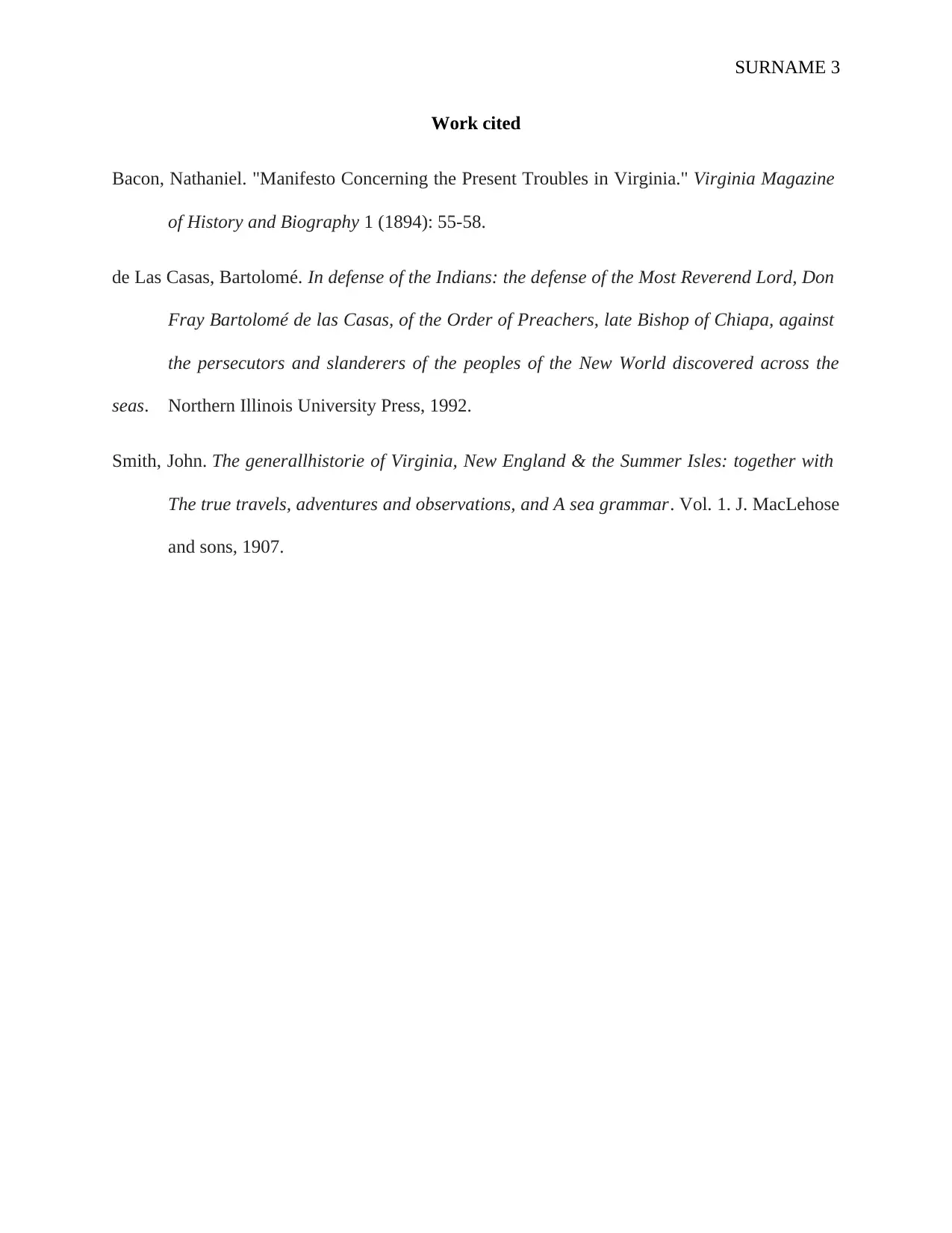A Historical Analysis of Slavery in America: Causes and Effects
VerifiedAdded on 2021/06/17
|3
|534
|134
Report
AI Summary
This report provides an overview of the history of slavery in America, beginning with its economic roots and the rise of the abolitionist movement. It explores the economic impact of slavery, particularly in the Southern United States, and the subsequent political tensions that led to the Civil War. The report highlights key events such as the Kansa-Nebraska Act and the Fugitive Slave Law, which further exacerbated the regional conflicts. The analysis also references significant figures like Bartolomé de las Casas and John Smith. The report concludes with a discussion of the Compensated Emancipation Act of 1862, which aimed to abolish slavery. The provided report is a valuable resource for students studying American history.
1 out of 3




![[object Object]](/_next/static/media/star-bottom.7253800d.svg)